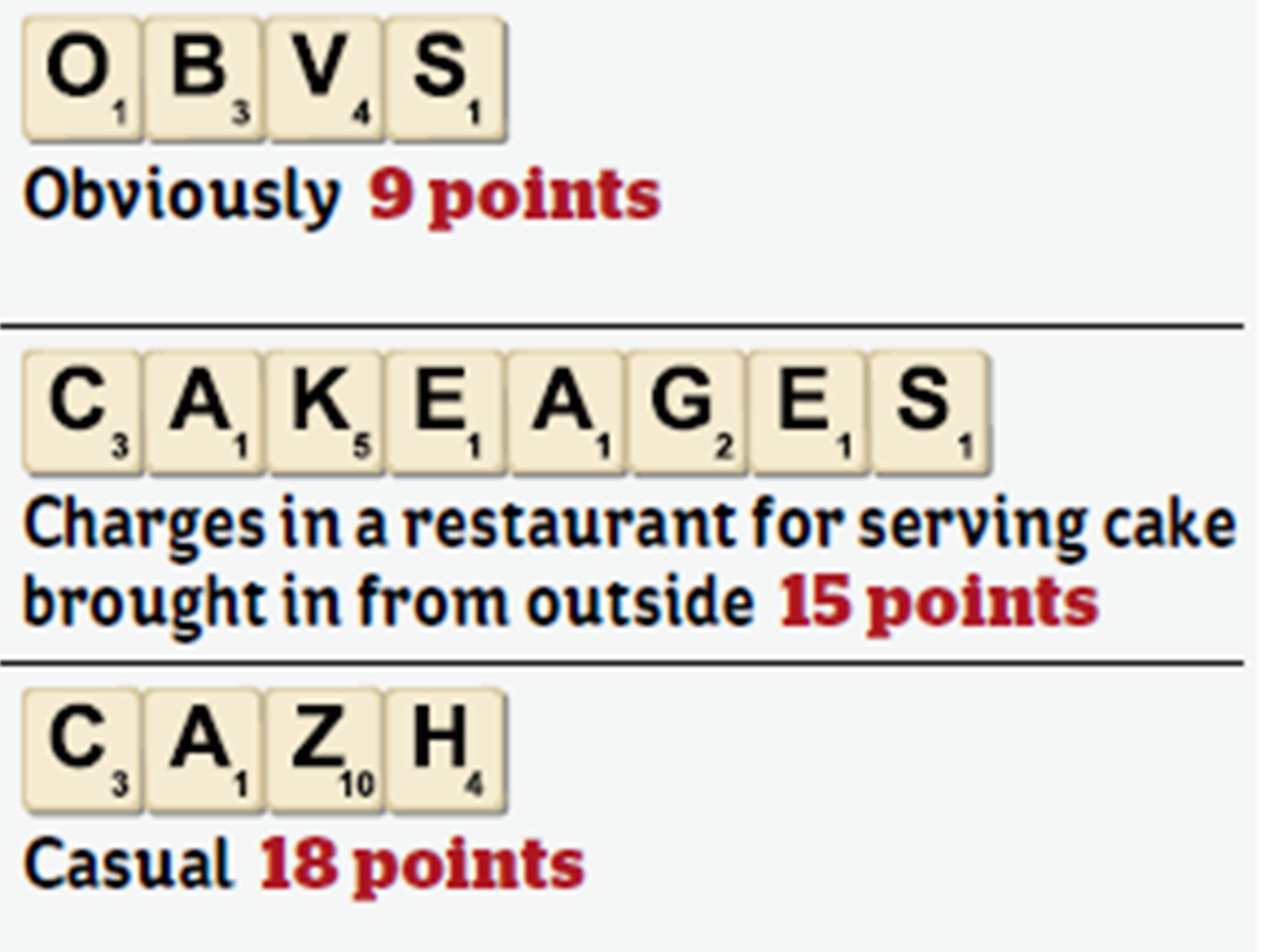The new Scrabble words make you fear for the English language
Players of the popular word game can now score points with lolz, shizzle and cakehole

Lolz, shizzle and cakehole - just three of 6,500 new words to have made it into the Scrabble lexicon.
The new additions to the Collins Scrabble word list draw heavily from social media slang and text-speak and include obvs (obviously), ridic (ridiculous) and dench (excellent).
Other new words in the list reflect modern society, trends and events, such as twerking, devo (short for devolution, as in Devo Max), vape (to inhale from an electric cigarette), onesie, shootie (fashionable shoe that covers the ankle), cakeages (restaurant charges levied for serving cake brought in from outside), and podiumed (often used at sporting events, particularly the Olympics).
The new word list also recognises the role technology continues to play in our lives with the addition of facetime, hashtag, tweep, and sexting.
Onomatopoeic interjections listed in the dictionary are allowed in Scrabble and now players can add exclamations such as augh, blech, eew, grr, waah and yeesh to their game.
Some of the highest-scoring new words are quinzhee (29 points - an Inuit snow shelter) and schvitz (24 points - to sweat).
Helen Newstead, head of language content at Collins, said: "Dictionaries have always included formal and informal English, but it used to be hard to find printed evidence of the use of slang words.
"Now people use slang in social media posts, tweets, blogs, comments, text messages - you name it - so there's a host of evidence for informal varieties of English that simply didn't exist before."
(Additional reporting by PA)
Join our commenting forum
Join thought-provoking conversations, follow other Independent readers and see their replies
0Comments